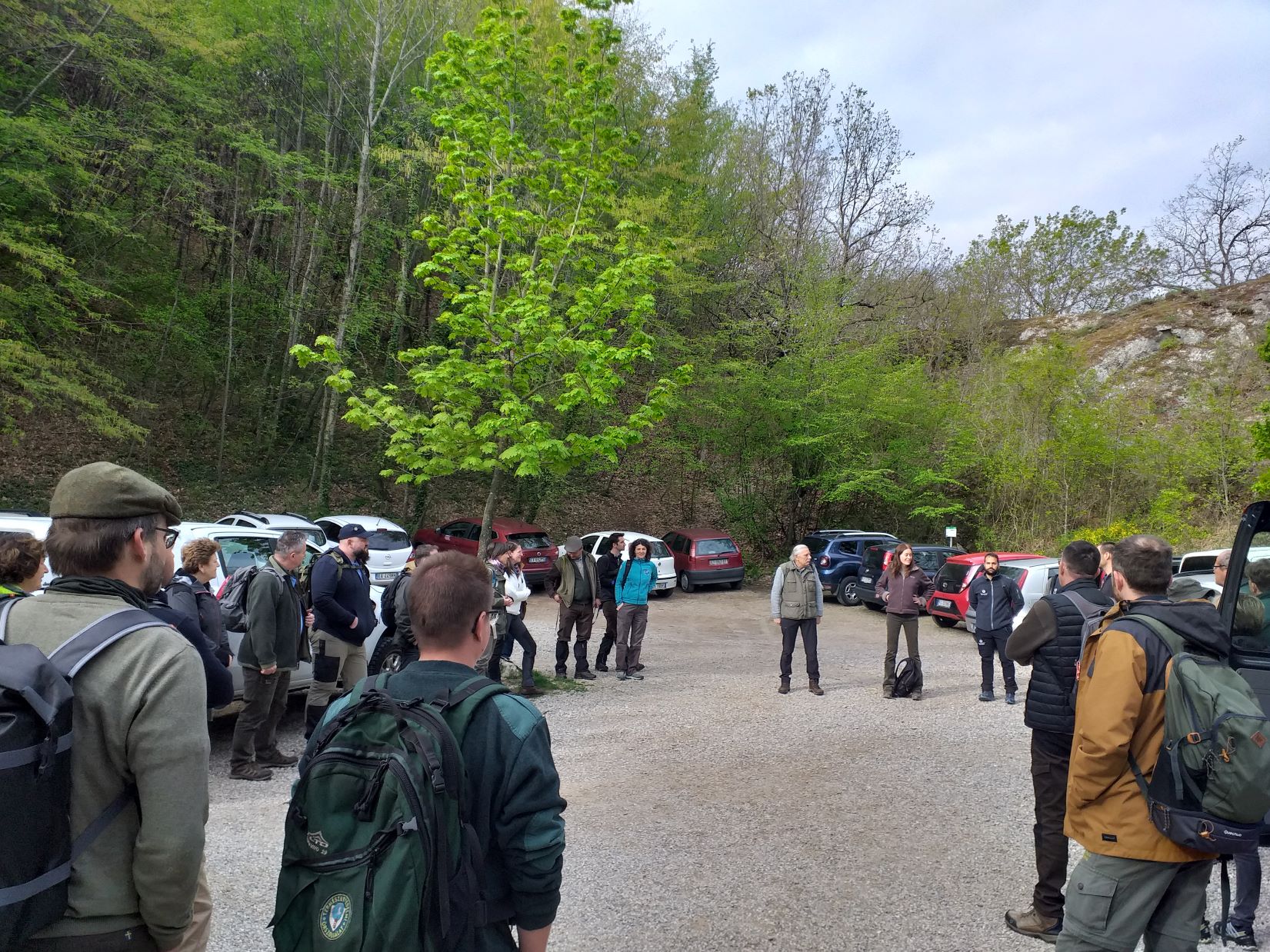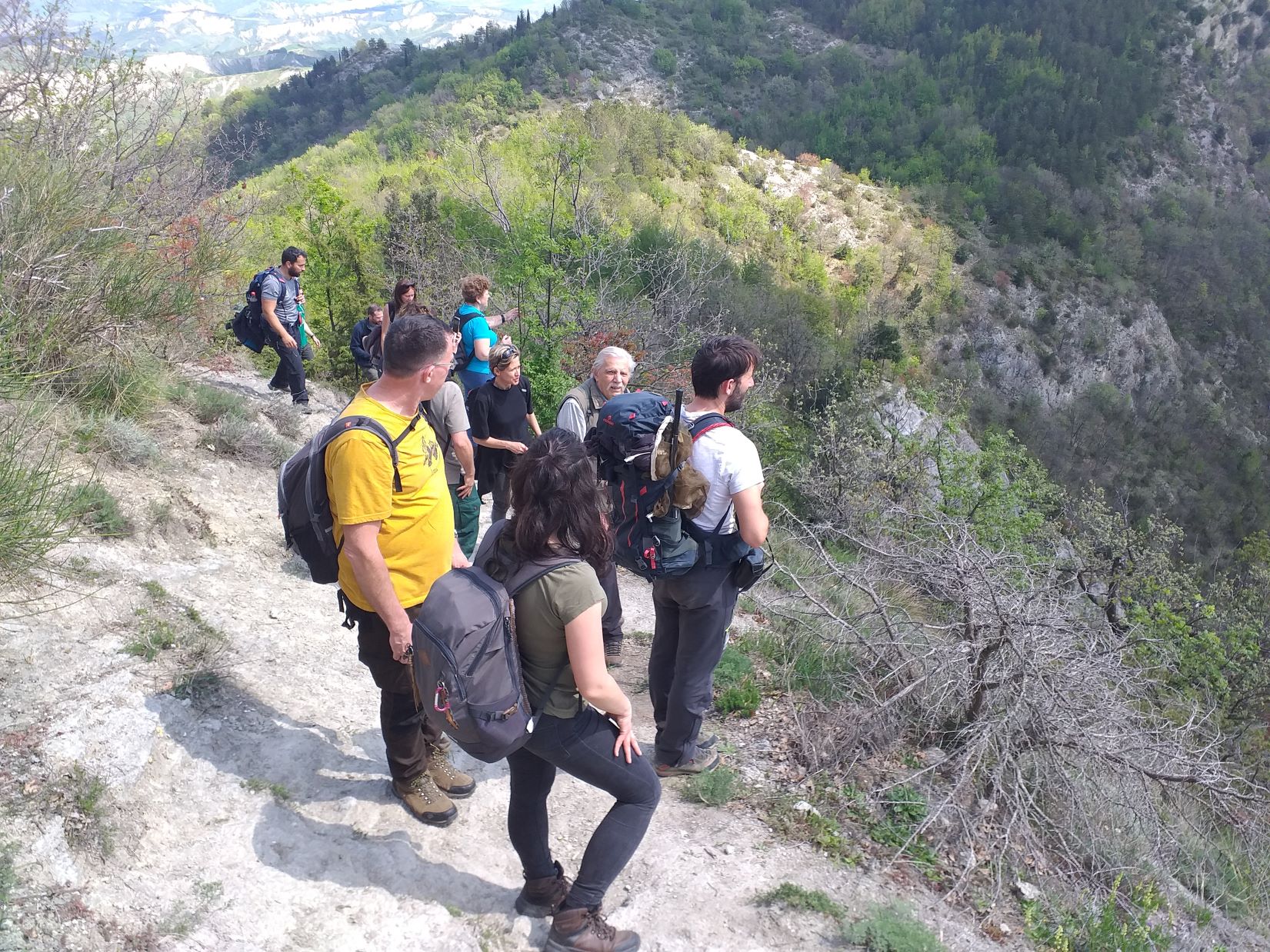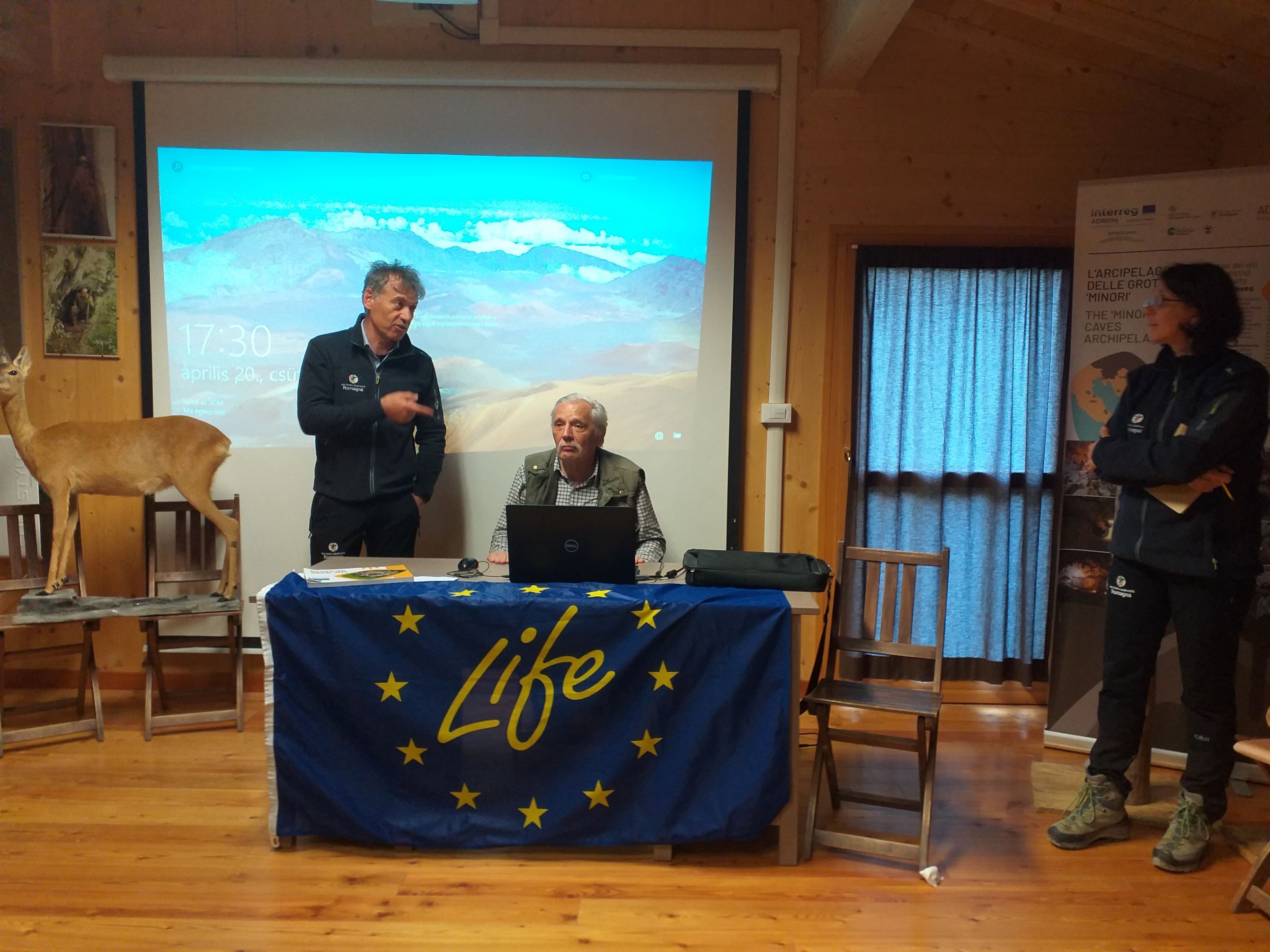As a result of the heavy human use the biodiversity of oak forests is in decline. The natural conservation measures of LIFE4OAK FOREST project aim to reverse this process. The aim is, in fact, to promote forest regeneration and to restore the structural diversity and composition of native species and micro habitats. The project is co-funded by the European Union’s LIFE programme and is being carried out in Italy in some identified areas within the Parco regionale delle Vena del Gesso Romagnola and in Hungary within three National Parks: Balaton National Park (BfNPD), Duna-Ipoly National Park (DINPD) and Bükki National Park (BNPD).
From 18 to 20 April, the Hungarian delegation visited the Parco regionale della Vena del Gesso Romagnola for a joint technical evaluation of the Life4Oak Forests project. Representatives of the 3 Hungarian National Parks, WWF HU, the Hungarian Ecology Research Centre (ÖK) and ETTE were present at the meeting. During their three-day stay, the guests were able to view many of the project’s intervention areas within the Park. The first day was dedicated to the Carnè-Rontana Life Project area, with a visit to the Nature Trail and the new birdwatching hut. The second day was dedicated to an excursion in the Monte Mauro Life Project area. Finally, the third day an inspection was conducted to Riva di San Biagio Life Project area to observe the forest conservation interventions also within a private property. During the three days, a continuous and fruitful exchange took place between MAR and the Hungarian delegation regarding forest conservation interventions. It was an exchange of information aimed particularly at Actions C of the Project. These actions focus on the restoration of managed forests in order to improve the oak habitat, increase biodiversity and steer the forest towards becoming a natural forest, assess the impact of wild grazing on the forest and suppress invasive alien species such as Ailanthus.
This happy and fruitful meeting consolidated the already good relationships between MAR and the Hungarian beneficiary partners, generating the conditions for new and valuable exchanges of technical and scientific knowledge.
The delegation of Hungarian beneficiary partners of Life4OakForests Project visiting the Parco regionale della Vena del Gesso Romagnola.
on May 8, 2023
with
No Comments


